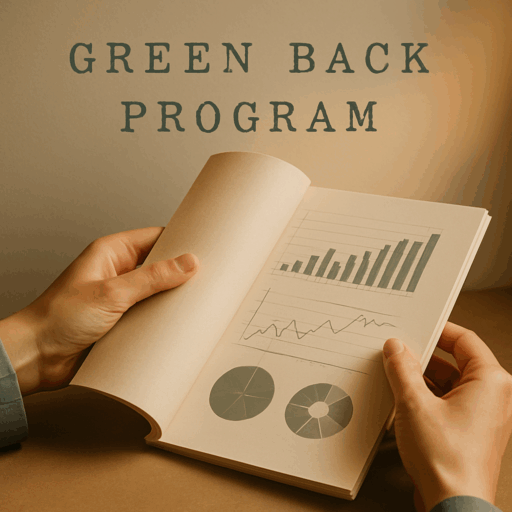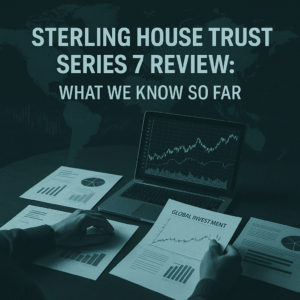The Sterling House Trust Series 7 Green Back Program has come under growing scrutiny. Since August 2024, transfers of investor funds have been suspended, reportedly due to an anti-money laundering (AML) audit.
More than a year later, restrictions remain in place with no resolution in sight. At this stage, there is mounting speculation that Sterling House Trust may be in serious trouble.
We can’t say for certain. Sterling House Trust hasn’t provided transparent, independently verifiable updates, so the program remains high-risk and surrounded by uncertainty.
My contact details are hello@adamfayed.com and WhatsApp +44-7393-450-837 if you have any questions.
The information in this article is for general guidance only. It does not constitute financial, legal, or tax advice, and is not a recommendation or solicitation to invest. Some facts may have changed since the time of writing.

What is Sterling House Trust Series 7 Greenback Program?
The Sterling House Trust Series 7 Greenback Program is an overseas financial product established by Sterling House Group Ltd.
It is part of a series of offerings by Sterling House Trust, which specializes in international asset protection and providing access to alternative investments typically available only to institutional and professional investors.
The Series 7 program falls under their umbrella of alternative investment opportunities that go beyond traditional asset classes and are selectively made available to clients through a global network.
Sterling House Trust Greenback Investment Issues

It is important to note that the greenback program from Sterling House Trust has been involved in regulatory scrutiny in Japan, as authorities have taken notice of its introduction and usage.
The matter particularly relates to cross-border promotion and compliance with financial laws.
Fund transfers tied to the program have reportedly been suspended, allegedly due to the aforementioned AML audit.
The Securities and Exchange Surveillance Commission’s investigations have led to administrative recommendations against local intermediaries involved in marketing the program.
As of now, many investors remain unable to withdraw funds, and transparency is limited.
Speculation and Investor Concerns
Given the prolonged suspension and lack of independent confirmation, many investors speculate the program may be facing serious regulatory or financial trouble.
The opacity in communications, absence of public confirmation from third-party regulators, and lack of a concrete timeline for resolution should be major red flags for current and prospective investors.
Sterling House Trust Investment Pros
Normally, a balanced review might highlight structural strengths or potential benefits. But in this case, until reliable information is made public and funds are demonstrably released, it is difficult to see positives as relevant.
What matters most is whether Sterling House Trust can prove it is still solvent, compliant, and acting in good faith.
Bottom Line
Sterling House Trust’s Green Back Program may be under severe stress, but without definitive public disclosures, we can’t conclude wrongdoing for certain.
What is undeniable is that thousands of investors are trapped in ambiguity. Until more facts emerge, caution is absolutely warranted.
FAQs
What is Sterling House Trust?
Sterling House Trust is a company specializing in international asset protection and wealth management solutions for clients with cross-border financial challenges.
The firm also offers other series covering trusts and foundations, special purpose vehicles (SPVs), estate planning, residency options, banking services, and property investments.
What is a Green Back Program?
In the context of Sterling House Trust, the Greenback Program refers to their Series 7 alternative investment product.
It is marketed as a structured investment vehicle combining alternative assets and asset protection components.
Is it better to invest through a trust?
Investing through a trust can offer benefits like asset protection, estate planning efficiency, and potential tax advantages.
However, the safety and legitimacy of the trust structure depend on the jurisdiction, regulatory oversight, and the trust company’s credibility.
Always ensure the trust is properly managed and transparent before transferring assets.
Are alternative investments a good idea?
Alternative investments—such as private credit, real estate, or structured products—can provide diversification and higher potential returns.
Yet, they often come with liquidity risk, complex terms, and less oversight than traditional investments.
They’re best suited for experienced investors who understand the underlying risks or those who work with a financial advisor.
Pained by financial indecision?

Adam is an internationally recognised author on financial matters with over 830million answer views on Quora, a widely sold book on Amazon, and a contributor on Forbes.



